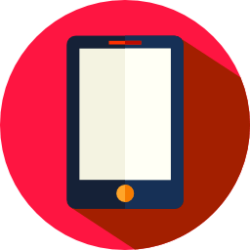A Different View on in-Store Customer Service

Why?
Customers don’t want to be bothered, and unless you have the right sales people doing it the right way, you are better off not bothering them until the right time.
How?
Have “get help” button at many places in your store. The shopper should not walk more than a couple of steps to get to such a button. At the same time have no sales people visible at all. When the client presses such a button, a sales person should know where it was pressed and be there in a couple of minutes.
What Ticket to Buy and How

Why?
You are at the bus or train station and the machine selling the ticket is not very helpful.
How?
An app that – based on your location and where you want to go – tells you what ticket to buy, how much it will cost and what to ask for when buying it at the counter, or which one to choose when purchasing at the automated ticket selling machines.
Get Someone to Help You Choose the Next Book

Why?
Automated suggestions are far from perfect, and you don’t want to spend the time reading a lot of lists and reviews.
How?
A service of the online or offline bookshop, where you can talk to an experienced person that can help you choose your next book or a kind of book you are looking for, and help you order it.
Feedback Service for Podcast Beginners

Why?
You want to start a podcast, but you are hesitant because maybe your voice is not right or you think you sound funny.
How?
Have a service where people can send their podcast samples for users to listen to and give honest feedback, about sound quality, your speech patterns, the way you sound, your intonation and anything else that seems strange or off to them.
Show the User What You Know and Get His Help

Why?
You want to know your user’s profile: his preferences and behavior based attributes. The two conventional approaches today are to either ask him or make guesses based on his behavior. Both have flaws.
How?
Combine the two and iterate. If you already have some concrete ideas about the user, based on his behavior, show him what you think he is interested in, then ask him to help by telling you where you are wrong, inaccurate, missing facts, etc.
